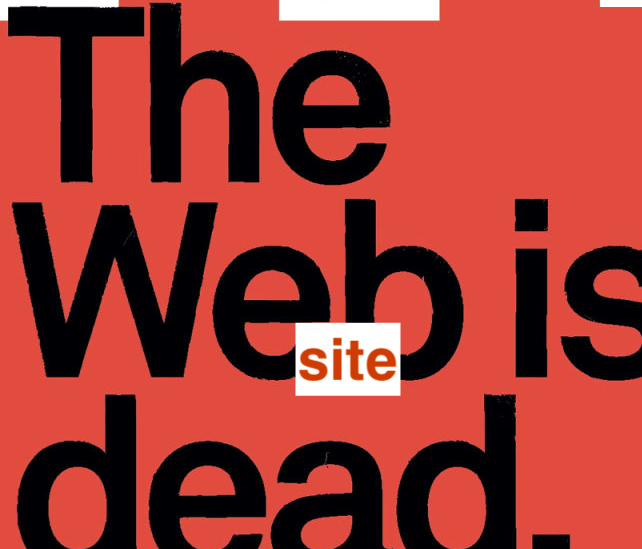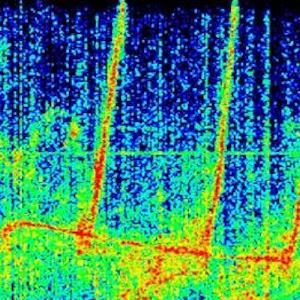New Green History Of The World (The Environment And The Collapse)
By Audio Pervert - 6/29/2021
"Past human actions have left contemporary societies with an almost insuperably difficult set of problems to solve... In the last fifteen years the balance was clearly tipped in favor of pessimism.." Clive Ponting - New Green History Of The World (The Environment And The Collapse) published in 1993.
Clive Ponting's book did not make a bestseller, yet like a vanguard, the writer decisively spoke of irrevocable changes to come. What was such clairvoyance based on? On human history by all means! History, but not the kind you hear on NatGeo exclusives or address at Climate Action Summits. Almost thirty years on, the world can clearly feel the above predicament : call it a confluence of outcomes. The impact of human actions upon the living planet. Thousands of years of human activity, progress and expansion is revealing disturbing consequences and a future beyond our control and collective resolution. The New Green History Of The World explains how human societies (big and small) evolved and collapsed over the last 10,000 years, almost always linked to the environment and our tryst with progress. For thousands of years humans have succeeded in obtaining more food, extracting more resources, to build, sustain and expand increasingly complex and technologically advanced societies. The same all-pervasive ideology of 'advancement' has also given us a society of 7.8 billion people, facing fatally depleted resources and round-the-clock environmental disasters (global warming, loss of ice, the 6th mass extinction, forest fires, flooding, rising sea levels and mass exodus). Is history finally catching up? Is climate and human progress linked? Will climate dictate the future and not human beings?
From paradise to cannibalism!
The story of Easter Island is a grim warning to the rest of civilization - about the impact of human actions and it's disastrous consequences. Easter Island (Rapa Nui) is one of the most remote inhabited places on earth. Just about 400 sq-kms in size, a dot in the Pacific Ocean, 3200 kms off the coast of Chile. The island was first discovered and colonized around 300 CE by Polynesians, who arrived on boats, and along with them came pigs, dogs, chickens, rats and plants/fruits like yam, coconut, sweet potato and bananas. The island was once a thriving community, practicing fairly advanced systems of organization, language, religion, social hierarchy, construction, ceremony, art and sculpture. At its peak, the population is believed to be about 8000. We all know of the giant statues, solemn faces of men, dotted allover the Island (about 600 in number). Ever since the discovery of the island by European colonizers in 1722 (on Easter Sunday), a lot of anthropological debate and speculation has followed about the massive statues and the societies which erected them. The earliest records by the Dutch, Spanish and British, who visited Easter Island over the next 100 years, spoke of a primitive state and a barren island - with about 1000 people living in squalid reed huts or caves. Small tribes engaged in perpetual warfare, robbery and sometimes resorting to cannibalism in a desperate attempt to supplement the meager food supplies available on the island. The next 100 years saw a 90% decline in the population of the island, with a majority of the natives being shipped off and sold as slaves in Peru, Chile and Argentina by Spanish colonizers. Today less than 70 people live on Easter Island. What happened to the Rapa Nui (natives of the island)? Why did a 1000+ year old society perish and get subsumed by perpetual war, starvation and cannibalism?
“The colonization of Easter Island belongs to the last phase in the long-drawn-out movement of human settlement across the globe… The Easter Islanders, aware that they were almost completely isolated from the rest of the world, must have realised that their very existence depended on the limited resources of a small island” writes Ponting. Hence the island can be compared to a microscopic version of the earth itself. Afloat inside a vast oceanic space, the residents of Easter Island altered the ecosystem, bit by bit, cutting down large tracts of forest cover and creating big quarries to erect the massive statues, build temples, houses, boats and make way for cultivation and fuel. Such progress must have gone very well, till the resources (finite) started running out for the growing population and it's culture of extraction (infinite). In essence the decline in population is directly linked to the felling of trees and consequent repercussions of ecosystem failure. Recent studies show a drastic decline in the population, of up to 75% within a span of 100 years (1450-1550). The islanders began to starve, lacking their supply of meat and having depleted the island of birds and fish. As life worsened, an orderly society disappeared, giving way to chaos, violence and disarray. The islanders trapped within a geographic limit, with no outside help, faced inevitable extinction. "Self inflicted environmental collapse" writes Clive Ponting.
By God's grace and the blessed industry of Man!
One of the major themes of 16th, 17th and 18th century European philosophy and enlightenment was the emphasis placed on human domination over nature and animals. Eminent folks like Descartes, Suarez, Spinoza, Newton and Thomas Hobbes believed in the role of humans completing "God’s Plan". Human actions directed towards this end were seen as being beneficial and harmless. God's plan was practiced again and again, to wage wars, to invade and colonize new continents, commit genocides and extract the new riches and materials. The lineage of this deeply erroneous vision spilled over into the Industrial revolution, shaping dominant European thought - eventually to the rest of the colonized world, to far corners of Asia, Africa, Polynesia and Australia. By mid 1800s a vast majority of European scholarly opinion was that science and technology defined progress - the most vital tool to enable humans to dominate the earth. And dominate we did!
This is strongly expounded in the works of Francis Bacon. "The world is made for man, not man for the world" and "Man, be regarded as the center of the world, insomuch that if man were taken away from the world, the rest would be meaningless or serve no real purpose". Bacon's philosophy and treatises, over time came to define certain foundations of British expansionism, leading to the justification of colonization, scientific progress and industry. The irony of Francis Bacon's faith in the power of science, is exposed by his loyalty towards orthodox christian values. "Let the human race recover that right over Nature which belongs to it by divine bequest." Divine What? That "right" became the language of violence, racism, indoctrination, loot and plunder. From the onset of the industrial revolution, "European progress" became indisputable (like organized religion) however remaining exhaustive and unstable. Over the next 150 years, intellectual, scientific and military prowess proliferated the idea of anthropocentric progress allover the world. Those who resisted were wiped out, driven out or deemed primitive, inconsequential and savage!
House on fire!
In the present climate, around the world, almost everything that can be proposed as an alternative would either appear to be utopian, political or trivial. Hence our 'programmatic thinking' is paralyzed, owing to the last 200 years of indoctrination - about progress, science, economics and the "universal presence of technology". Unable to imagine new futures nor reject past beliefs, we are at a crossroad of sorts. The significant implications of human actions upon the planet is clear. A reduction in wildlife habitats and the extinction of species on a local scale can be identified from the time of the first large scale human settlements (Nile, Mesopotamia, Indus Valley and Huang). 5000 years of colonization and ecosystem damage has reached a climax of sorts. A point of no-return? And nature does not play referee nor call for a 'time out'. As Ponting wrote in his book "by the early twenty-first century the pressures of free-market capitalism, enshrined as the dominant ideology of the world, took little account of environmental constraints. Leaders, industrialists and policy makers also failed to concur about the planet's resources being finite, less even speak of possible future collapse... the biggest industrialized nations continued to enforce the idea of infinite growth and progress, almost like a biblical conclusion." But wait, the rape of the world is not over yet!
“Species extinction, widespread disease, unlivable heat, ecosystem collapse, cities menaced by rising seas — these and other devastating climate impacts are accelerating and bound to become painfully obvious before a child born today turns 30...” reports AFP. As record heat-waves sweep the northern hemisphere, marking unprecedented rise of global temperatures, the alarm bells seem to ring even louder. A terrifying and excruciatingly detailed report by the Intergovernmental Panel on Climate Change (IPCC) details what is happening out west is not a "meteorological fluke", but a hard look at the immediate future of the planet. The message from IPCC's panel of scientists is clear and grim, as “Climate change will fundamentally reshape life on Earth in the coming years and decades, even if humans can tame planet-warming greenhouse gas emissions and fossil fuel usage. Irreversible consequences stemming from a century of unbridled carbon pollution are unavoidable in the short term..."
For centuries humans have acted as though water, cultivable land, minerals, metals, trees, plants, animals, fish, birds etc etc were infinite or if they were not, it did not matter. The same catastrophic denial based logic is applied to the production of energy - which powers everything we depend upon. Everything but the ecosystem. Amazing and endless is human folly in this respect. As Clive Ponting encapsulates our relationship with nature : "It has been a monument to human short-nearsightedness. Not only have many industries declined or collapsed altogether over centuries, but there has been a catastrophic loss of wildlife around the world, over hundreds of years. Across large areas of the world animals, fish, birds and insects have been driven to extinction and overall numbers have fallen dramatically - total extinction was only avoided in some cases because it became uneconomic to hunt the last remnants of a once thriving species. The result has been falling diversity and the creation of an increasingly impoverished world..." This article cannot possibly account for the immense damage that human civilization has inflicted upon the living planet and ironically is now doing the same upon itself. Nor are we smart enough to address moral responsibility. Accountable each one of us is. As individuals who care most about life on earth, there remains no doubt that we must change radically or perish like the exotic people of Easter Island did.






























0 -